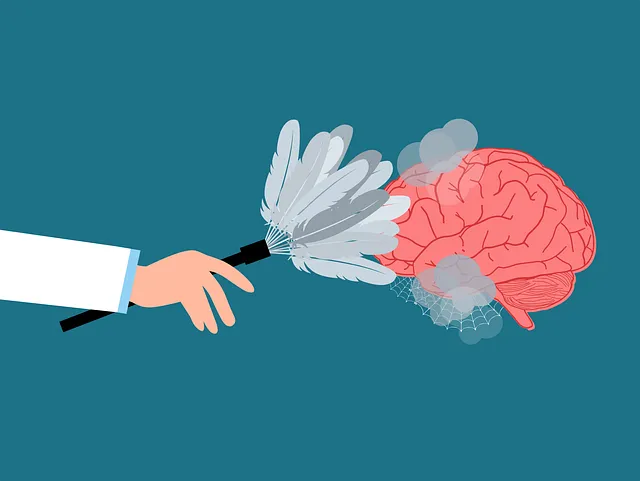Kaiser Permanente's mental health centers in Aurora lead community outreach efforts, addressing access barriers through initiatives like Mental Health Policy Analysis and Advocacy. Their programs foster self-awareness, empathy, and supportive environments, improving mental health resource accessibility. Positive reviews highlight the center's inclusive services, workshops, support groups, and educational events, transforming community well-being. Targeted outreach strategies, including peer support networks, enhance connectivity with diverse populations, boosting individual well-being and social bonds. Continuous evaluation through KPIs and community feedback ensures cultural sensitivity and program effectiveness, as evidenced by successful Kaiser Permanente mental health center reviews in Aurora.
Community outreach programs play a vital role in enhancing mental well-being, especially for underserved populations. This article delves into the significance and impact of such initiatives, highlighting Kaiser Permanente’s Mental Health Center in Aurora as a beacon of community engagement. We explore effective strategies to reach at-risk groups and discuss measurement methods to assess the success of these programs, drawing insights from Kaiser Permanente mental health center reviews in Aurora.
- Understanding Community Outreach Programs: Why They Matter and Their Impact on Mental Health
- Kaiser Permanente Mental Health Center in Aurora: A Hub for Community Engagement
- Implementing Effective Outreach Strategies: Engaging at-risk Populations
- Measuring Success: Evaluating the Effectiveness of Community Outreach Programs at Kaiser Permanente
Understanding Community Outreach Programs: Why They Matter and Their Impact on Mental Health

Community outreach programs play a pivotal role in addressing mental health challenges within diverse communities. These initiatives, often led by healthcare organizations like Kaiser Permanente mental health centers in Aurora, aim to bridge the gap between specialized care and individuals who may face barriers to accessing services. By implementing programs that focus on Mental Health Policy Analysis and Advocacy, these centers empower communities to understand and advocate for their mental well-being.
Such outreach goes beyond mere service provision; it fosters Self-Awareness Exercises and Empathy Building Strategies, creating a supportive environment where individuals feel heard and understood. This approach not only improves access to mental health resources but also cultivates a culture of care and resilience within communities. By integrating these programs, Kaiser Permanente in Aurora highlights its commitment to enhancing mental health support, as evidenced by numerous positive reviews, while ensuring that services are tailored to meet the unique needs of different populations.
Kaiser Permanente Mental Health Center in Aurora: A Hub for Community Engagement

The Kaiser Permanente Mental Health Center in Aurora stands as a beacon of hope and support for the community. This center has successfully transformed itself into a vibrant hub for community engagement, offering a wide range of services that cater to diverse mental health needs. With a focus on public awareness campaigns, the center leverages innovative communication strategies to reach out to individuals seeking assistance. The implementation of these programs has been pivotal in promoting mental well-being and fostering open conversations about mood management within the Aurora community.
Through regular workshops, support groups, and educational seminars, Kaiser Permanente has created a safe space where people can learn, connect, and heal. These initiatives not only enhance public awareness about various mental health conditions but also equip individuals with practical tools for managing their moods effectively. The center’s commitment to community outreach programs has significantly improved access to quality mental healthcare, making it easier for folks in Aurora to seek the help they need.
Implementing Effective Outreach Strategies: Engaging at-risk Populations

Implementing effective outreach strategies is key to engaging at-risk populations and promoting mental wellness within communities. Organizations like Kaiser Permanente mental health centers in Aurora have recognized the importance of tailored programs that address unique challenges faced by diverse groups. By incorporating Burnout Prevention Strategies for Healthcare Providers, these initiatives foster empathy building strategies, ensuring a deeper connection with underserved communities.
Through creative approaches, such as peer support networks and community-based events, healthcare providers can break down barriers and increase accessibility to mental health services. This proactive engagement not only improves individual well-being but also strengthens the social fabric by empowering individuals to take charge of their mental wellness. Reviews highlight the positive impact these programs have on at-risk populations, offering a glimpse into a more inclusive and supportive healthcare landscape.
Measuring Success: Evaluating the Effectiveness of Community Outreach Programs at Kaiser Permanente

Measuring success is a vital aspect of evaluating the effectiveness of community outreach programs at Kaiser Permanente mental health centers, such as those located in Aurora. To gauge impact, several key performance indicators (KPIs) are tracked, including client satisfaction ratings and improvements in key areas like access to care, cultural sensitivity in mental healthcare practice, and inner strength development. Regular feedback from the community through surveys and reviews plays a crucial role in this process, providing insights into program effectiveness and areas needing improvement.
For example, Kaiser Permanente mental health center reviews in Aurora often highlight advancements in confidence-boosting initiatives, reflecting improved well-being among participants. By analyzing these reviews and client data, the organization can fine-tune their outreach strategies to better serve diverse communities, ensuring that cultural sensitivity is at the core of mental healthcare practice. This continuous evaluation process enables Kaiser Permanente to adapt and optimize their programs, ultimately fostering stronger connections between healthcare services and those they aim to support.
Community outreach programs, as exemplified by the Kaiser Permanente mental health center in Aurora, play a pivotal role in enhancing mental well-being. By implementing effective strategies that engage at-risk populations, these initiatives have been shown to significantly impact positive outcomes. As reviewed and evaluated by Kaiser Permanente, such programs are not just beneficial but essential for fostering robust communities. Through dedicated outreach, resources become accessible, and individuals receive the support they need, ultimately leading to improved mental health and overall quality of life.






